Congratulation Dr. Jackson!
Congratulations Dr. Jackson on defending your PhD and getting a postdoc position in Germany. Best of luck.
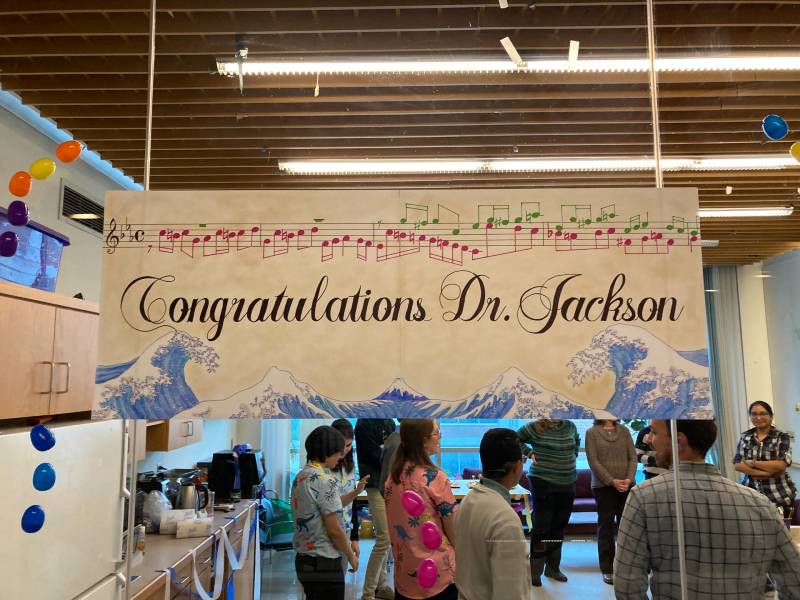
Congratulations Dr. Jackson on defending your PhD and getting a postdoc position in Germany. Best of luck.
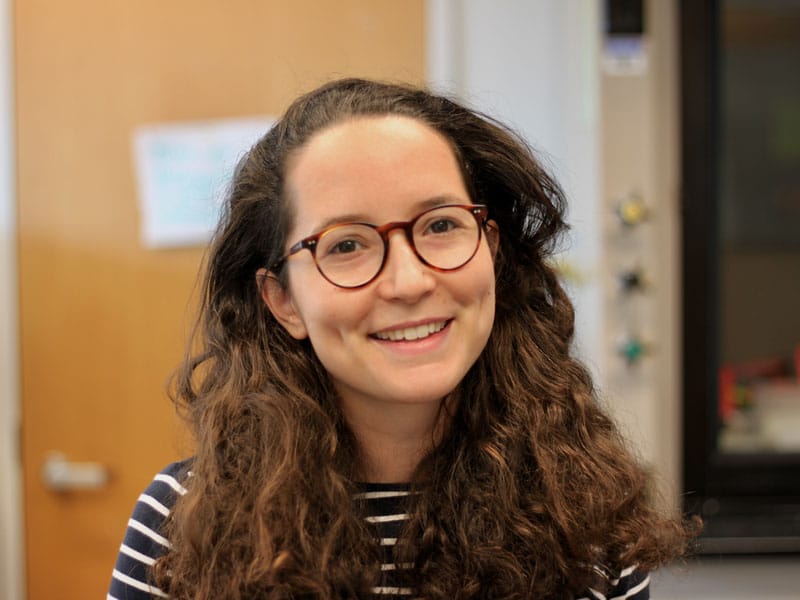
Hannah received her Ph.D. from the Institut Curie in Paris, France. Her Bachelor’s degree is in Physics and she published a really cool paper on cells walking a “tightrope.” She is interested in collective cell behavior changing tissue shape.
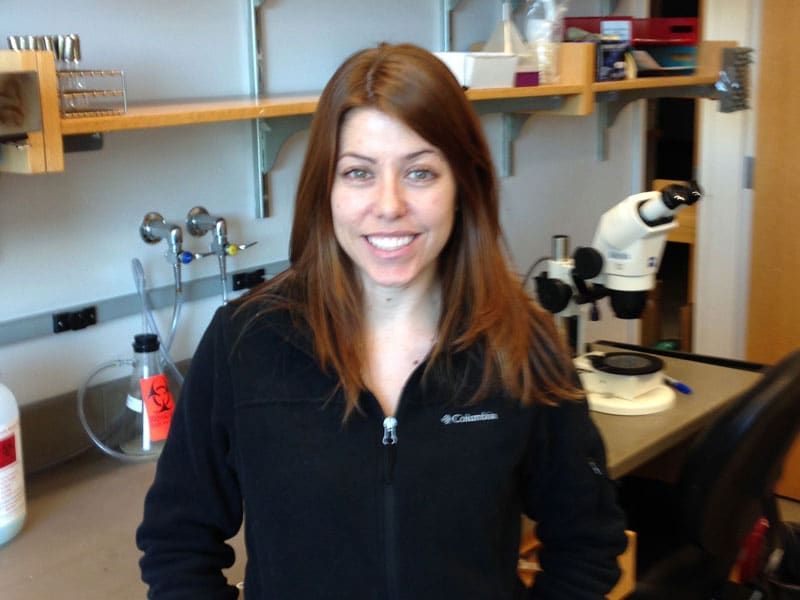
Jeanne comes to us from Vanderbilt University where she received a Ph.D. for her work on the mechanisms of dynein motor localization.

Juana De La O comes to us from the University of Chicago and the MIT Biology PhD program.
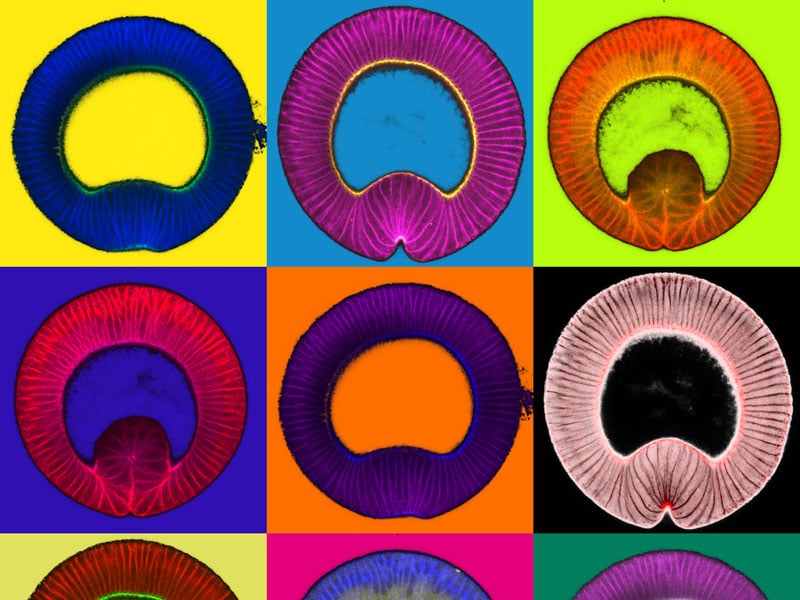
Congratulations graduate student Claudia Vasquez on her publication “Dynamic myosin phosphorylation regulates contractile pulses and tissue integrity during epithelial morphogenesis” in The Journal of Cell Biology. Claudia’s paper was also highlighted in a video interview with the JCB news editor.
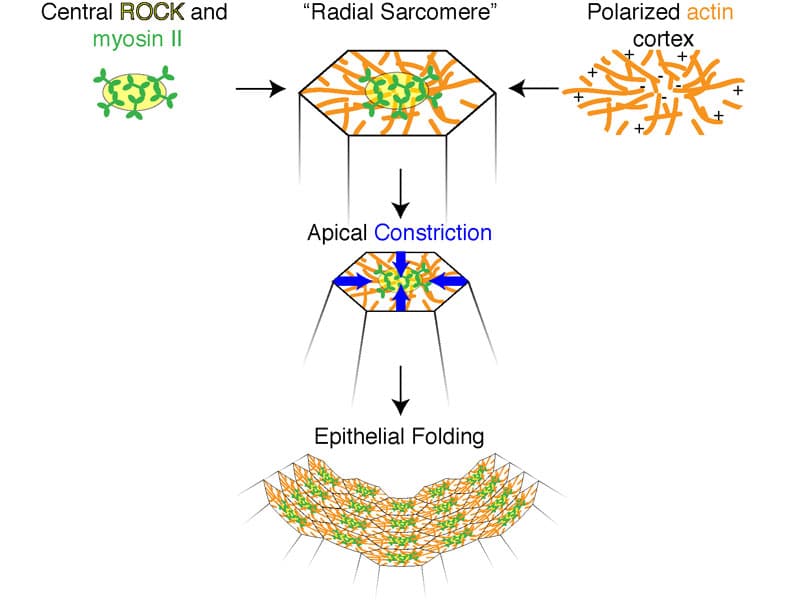
Congratulations Jonathan on publishing his work “Apical Sarcomere-like Actomyosin Contracts Nonmuscle Drosophila Epithelial Cells” in Developmental Cell. Jonathan discovered that the apical actin cortex of an epithelial cell can be organized like a muscle sarcomere to promote contraction and tissue folding.
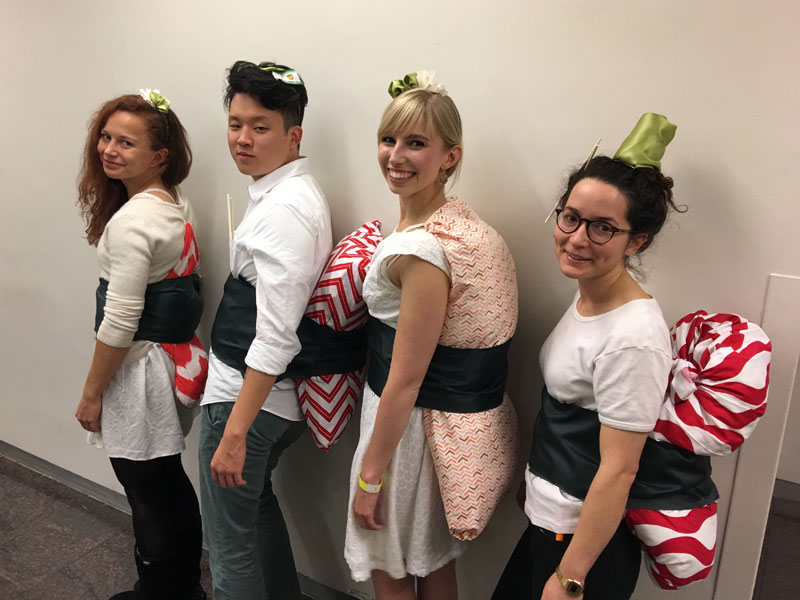
The Martin lab won the coveted group costume competition for the Biology department Halloween party. They had a winning combination of fish-like pillows and various forms of wasabi.